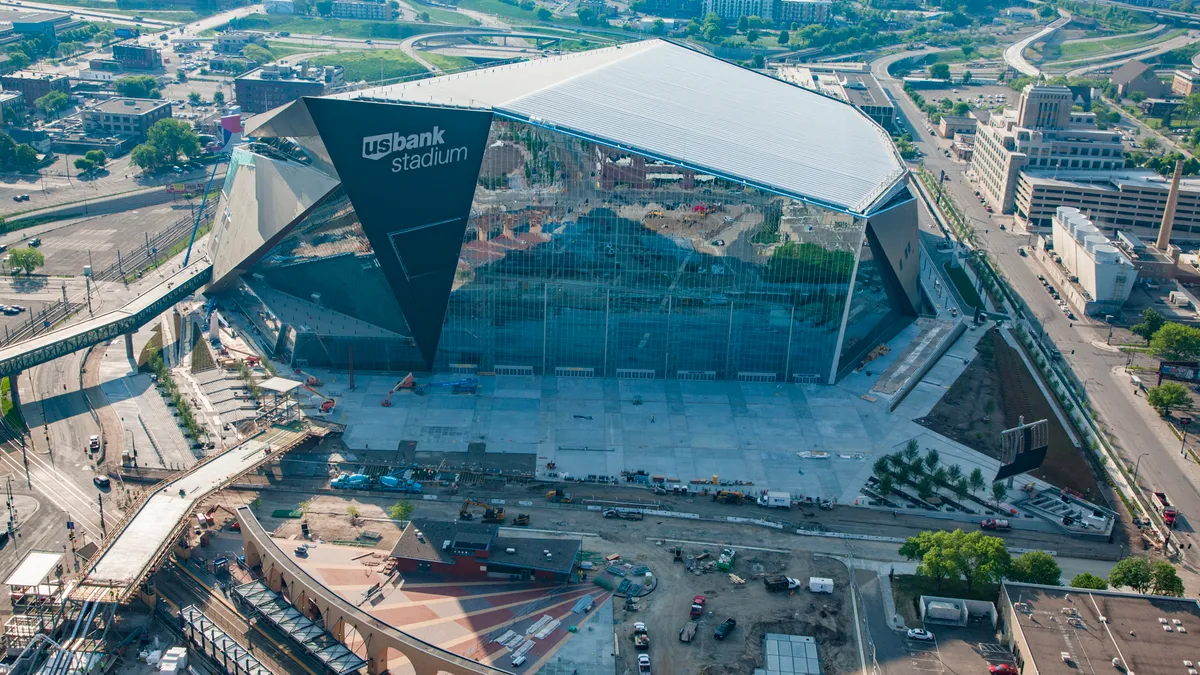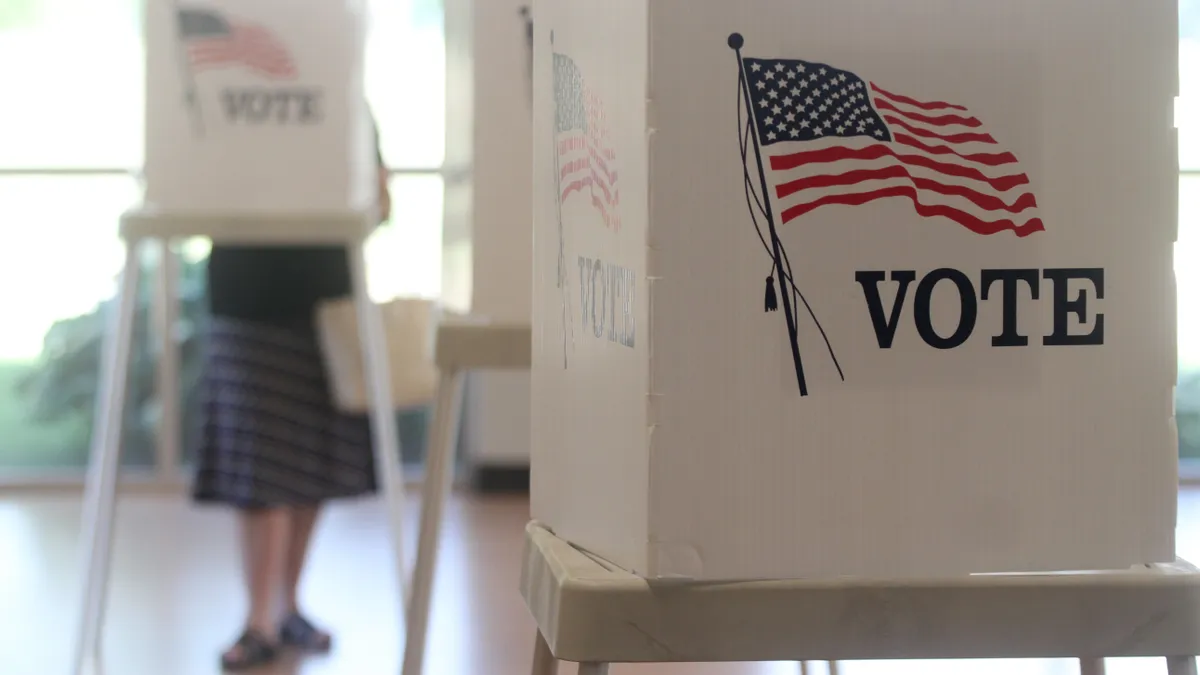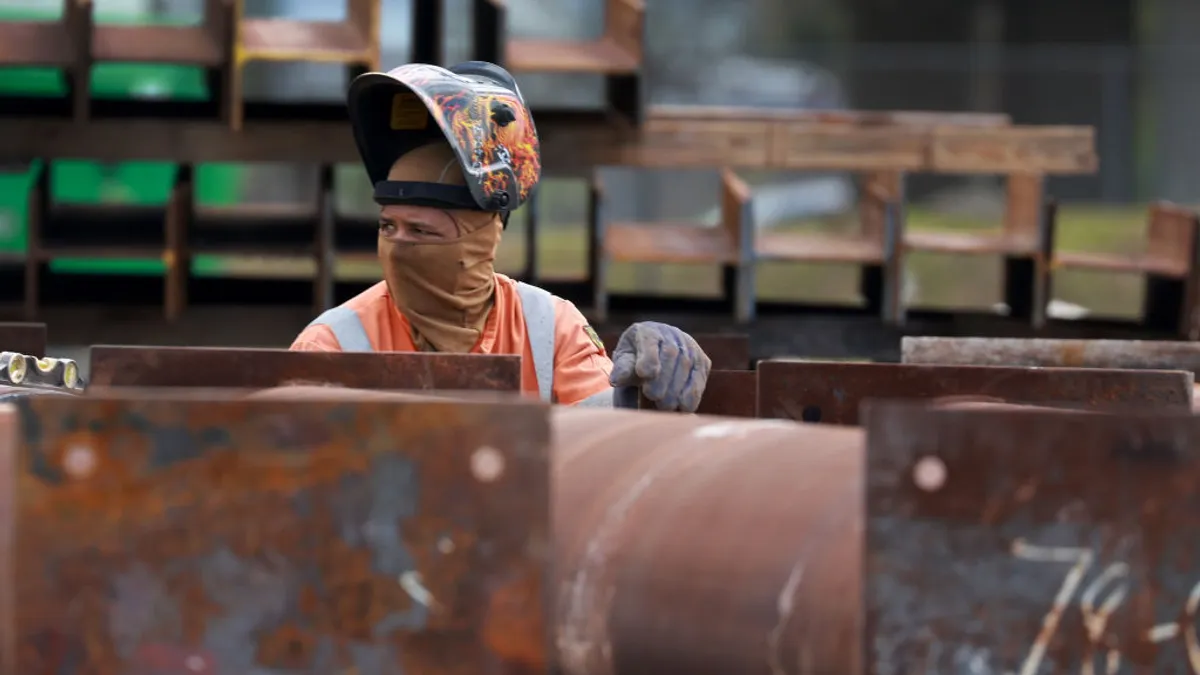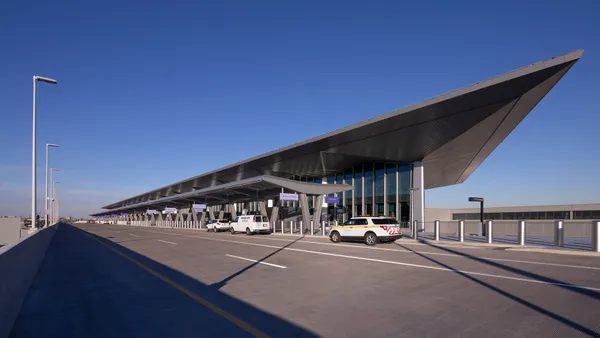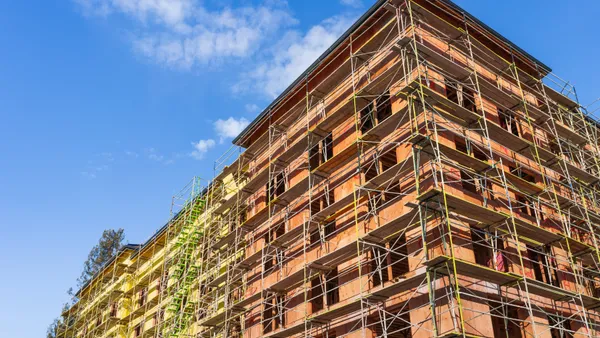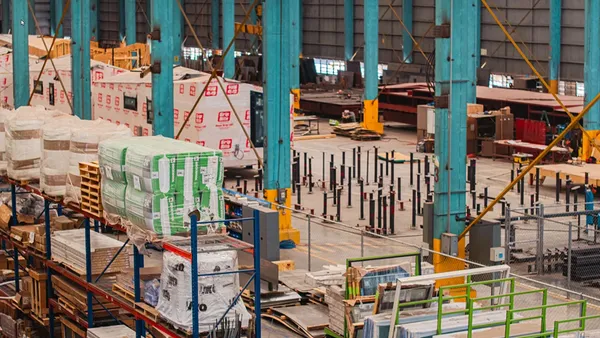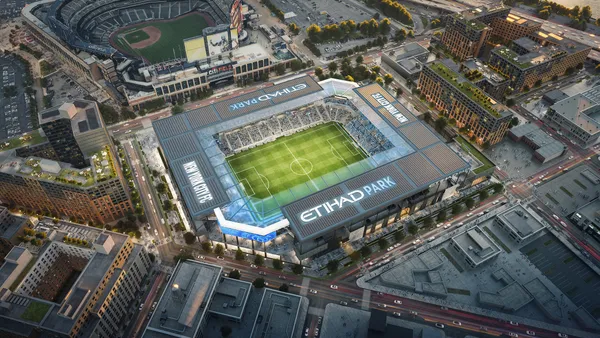Dive Brief:
- Downtown Minneapolis is in store for $2 billion in total public and private development and construction investments by 2025, all a part of its transformative Big Build initiative, according to Curbed.
- The city refers to the Big Build as a campaign to raise awareness about the scope of the new construction and infrastructure projects happening in Minneapolis. Completed, in-progress and future projects include the Minnesota Vikings' U.S. Bank Stadium, Target Center, Hennepin County Medical Center, Nicollet Mall, the University of Minnesota Athletic Village and the RiverFirst development along the Mississippi River.
- The building boom is expected to create a new 120-block downtown neighborhood, anchored by the U.S. Bank Stadium and a five-block, dual-tower Wells Fargo mixed-use complex. The city will showcase the results of the Big Build thus far when it hosts Super Bowl LII in February.
Dive Insight:
Stadiums are seen by some as having the ability to jumpstart a neighborhood or regional economy, and local governments are sometimes willing to put up part of the financing through tax-exempt municipal bonds. Those days, however, could be coming to an end.
Earlier this month, House Republicans unveiled their tax reform proposal — a measure that would prevent tax-exempt status for stadium projects. A report from Axios said that since 2000, public entities have used $13 billion of tax-free bonds to help finance sports venue construction. For example, the U.S. Bank Stadium got financing help from $392 million of tax-exempt bonds, according to the Brookings Institution. However, the nonprofit public policy organization also pointed out that the federal government lost $3.2 billion in tax revenue from 2000 to 2014 because 35 sports projects used them as funding mechanisms.
Professional sports teams like the Las Vegas Raiders, who plan to use $750 million of tax-exempt bonds to build their new $2 billion stadium, are likely looking to Senate Republicans to win out with their tax plan, which does not include the same provision, according to CNBC.
Also on the chopping block in the House bill are tax breaks for wind-power projects and electric car buyers. Once again, it could be the Senate to the rescue for these initiatives, as its version of tax reform retains existing credits. However, it's unclear how these credits will look after attempts at reconciling the two bills.


